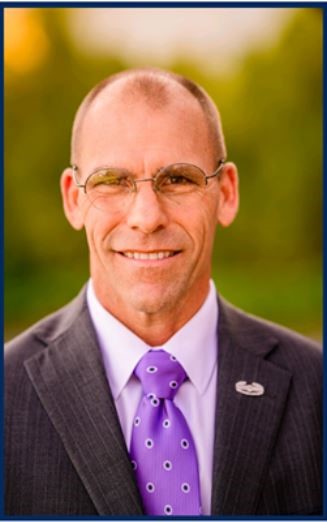Members of the board of directors for the Southeast Kansas Mental Health Center are remaining mum about the ongoing salary controversy involving the organization’s executive director and other key members of its management team, even though the adoption of the compensation plan that spurred the controversy appears to rest at the board’s doorstep.
The Kansas Informer has made multiple attempts to contact individual board members for comment regarding the criticisms leveled by some county commissioners in SEK’s six-county region. So far none of our calls, personal contacts or emails have been returned.
But the director of the state association of mental health centers is talking, and he says despite notations on SEK’s non-profit income tax filing, his organization never recommended what county commissioners and other members of the public are saying are the outlandish salaries now in place for SEKMHC executive director Nathan Fawson and other key staffers.

Kyle Kessler, who heads the Association of Community Mental Health Centers of Kansas (ACMHCK), said though his organization is cited on SEK’s tax filing as the basis for its executive compensation, the Arizona-based firm The Hebets Company actually made the recommendations that were eventually adopted by the SEK board.
The form’s notation citing Kessler’s organization raised particular alarm last week because Fawson is a director on the ACMHCK’s own board of directors – a position some saw as having possible incestuous benefits if Fawson somehow helped confirm his own eventual salary recommendation. But Kessler said the information compiled by his organization is a point-in-time analysis of the results of salary surveys of those state MHC’s. Though that survey data may be used as a benchmark for gauging prospective payroll, that compiled data doesn’t function as a recommendation, Kessler said.
“It’s a ‘what do you pay’ kind of thing,” for various positions in the different districts, Kessler said. “We don’t make recommendations on that kind of thing.”
Kessler said Fawson had asked ACMHCK’s associate director for some specific compensation consulting referrals, which ended in a contract between SEKMHC and The Hebets Company.
“My understanding is that they started comparing with similar organizations in other states that do primary care and dental, and kind of getting more into the larger array of healthcare,” Kessler said. “So they (Hebets) never asked for our salary study. I would suspect that it was given to them (the information when compiled is distributed to Kanas MHCs), but I don’t know that.”

A phone call over the weekend to The Hebets Company from the Informer seeking details on the recommendation was not immediately returned.
Kessler said his information on the issue was that Hebets’ report was given specifically to the SEK Board of Directors.
“I think they (the SEK board) said ‘okay Nathan does this seem fair to you?, and he said ‘yeah, more than fair’ and they said ‘okay we’ll adopt the recommendations of the consultants,” Kessler told the Informer. “I think it was about that simple, as it was communicated to me anyway.”

Fawson confirmed in an email received Monday that Hebets conducted the salary research and made the recommendations to the SEK board.
The recommendation eventually set Fawson’s compensation package according to SEK’s 2023 tax filing at some $628,000 annually and set other key employee salaries similarly far above comparable positions in the six-county region. Kessler said Hebets may have justified those recommended salaries because SEK has pursued particular initiatives to acquire primary health care and dental care services into its organization, thus expanding its revenue footprint. Information provided by Fawson showed SEK’’s 2023 net revenues of $31 million to include some $26 million – 80 percent – constituted by Medicaid billings.
Some county commissioners from the six-county region making up SEK have considered the organization’s salary platform for upper management an affront to taxpayers, who pay an annual subsidy of around $100,000 per county to fund the organization. Commissioners have discussed their possible options of ceasing that funding, or reducing it substantially in view of the salary revelations.

Each county appoints two board members to run SEKMHC. A meeting including a single county commissioner from five of those six counties was held last week to hear a presentation from SEK board vice chairman Dana Spencer regarding those criticisms. The meeting also included the wife of a Linn County Commissioner and the publisher of the Linn County News. The Kansas Informer was locked out of that meeting by meeting organizer and Allen County Commissioner David Lee.
Dane Hicks is a graduate of the University of Missouri School of Journalism and the United States Marine Corps Officer Candidate School at Quantico, VA. He is the author of novels "The Skinning Tree" and "A Whisper For Help." As publisher of the Anderson County Review in Garnett, KS., he is a recipient of the Kansas Press Association's Boyd Community Service Award as well as more than 60 awards for excellence in news, editorial and photography.





